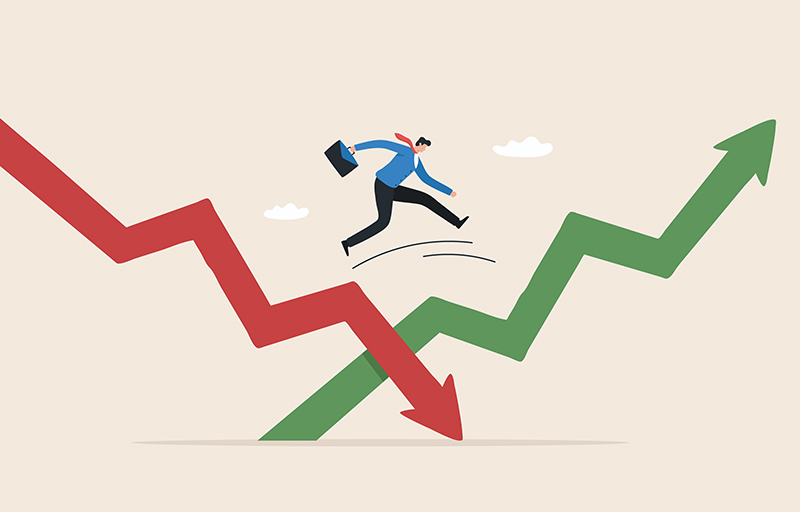People sometimes look at an expense and an investment as one in the same, but they can be very different, and a person’s philosophy towards investment vs. expense says a lot about their ability to manage life’s ups and downs over the long run. An expense is the dispensing of time, money, or resources. An investment, while an expenditure, comes with the expectation of a return. [1][2] While the two ultimately have the same goal –to acquire a good or service—their intentions and outcomes differ. So, let’s discuss the main differences between an expense and an investment and why sometimes, the reasoning to back up each cost can make a difference.
Defining Each Concept
People who consistently view investment opportunities with an expense mindset are likely to treat even strategic decisions with a survival mentality. This makes it difficult to create and then execute a plan that results in steady growth and long-term success.
Determining the period of usefulness of the asset acquired exposes the difference between an expense and an investment. The item, service, or experience obtained could be considered an investment if it is durable and promotes continual benefit for some time.[3] An expense, however, is when any potential gain is immediately received and finished shortly—its useful life is typically less than one year.[4]
Examples of Expenses vs. Investments
So, what are some examples of an expense vs. an investment? As we know, an expense is money that you spend on a simple exchange that doesn’t provide financial returns. People often spend their money on expenses. They buy clothing, decor, and groceries – things used for personal, non-financial, non-speculative reasons. Expenses need to be differentiated from other kinds of monetary transactions if you want to grow your wealth. An example of this is renting vs. owning a home. The payment could be basically the same sum, but when owning a property, you are investing in a potential gain for the future, whereas a rental payment only provides you with space for the month.
Determining whether your purchase is an expense, or an investment will benefit you to govern when and how much you should spend. For example, you may want to purchase a home computer. If you use your computer for your home office, education, remote work and research, your purchase will be an investment. Defining what it is you need from your computer will determine how much you should spend. Buying the latest, top of the line machine could either be an expense or an investment based on its purpose. Will ownership benefit you financially in the long term? A home computer, when used for your job or education, is an investment, but one used for shopping and entertainment is an expense.
Creating Financial Goals for Investing
It’s time to identify investment and expense in your budget. When money leaves your account, is it an investment or an expense? You can tell which is which by examining what you get back. If you get something long term back for your money, you have received a return on your investment (ROI). There are some things that you’ll never get a return on, like if you spend a few thousand dollars on a vacation. You don’t expect long-term financial gains from that expense. But if you invest in coaching or training, you certainly expect a return via education. Begin analyzing all your spending decisions to determine whether they result in present-based expenses or future-based investments.
There are a few things you can do today to build your investment portfolio and minimize expenses:
- Setting aside an emergency fund.Ideally, you should have 3 months income set aside for a major emergency. A savings account will protect your investments from early withdraw fees in the event of an illness, job loss or accident and will slowly build with interest.
- Contribute to your retirement fund. Invest in your 401(k) and other retirement accounts. You should be contributing to your retirement plan no matter your age and income. The earlier you start planning for retirement, the better.
- Finish paying high-interest debts. You should prioritize paying off high-interest debt as soon as possible. Often these debts have been created from expenses for items such as clothing or housewares that have little to no long-term value. Paying off these debts and using the money for future investments is a prudent way to convert expenses to investments. A well-known billionaire once said sometimes you have to finance things, and it’s okay to finance necessity, personal growth, or business items. But don’t borrow money to buy luxury.
- Review Your Financial Budget. Take the time to look over your finances and figure out where your money is going. You may also speak with a financial planner for a budget and investment review, and advice. Par down your expenses and put your money into places — and people — that will drive your financial portfolio forward.
Conclusion
Learning to Balance expenses and investments, and determining the difference between the two, are vital parts of maintaining a financial and personal well-being. Whether you are an entrepreneur launching a business, or simply building security for your future, begin the practice of determining whether you are creating expenses or building your investments.
Forming a financial plan that accounts for both investments and expenses will ensure your money works for you, helping you enjoy your life and gain financial freedom. If you’d like to discuss your financial plan further, contact us at EGSI Financial for a complimentary review.

